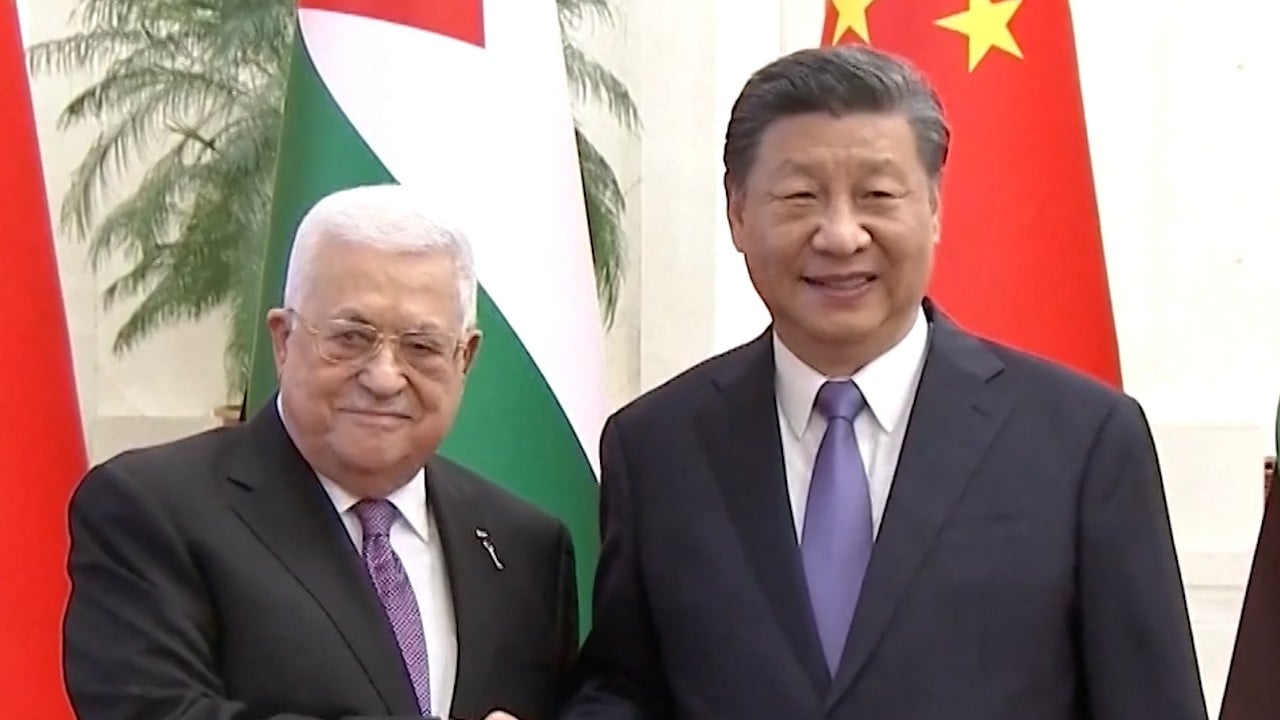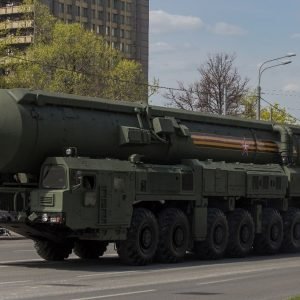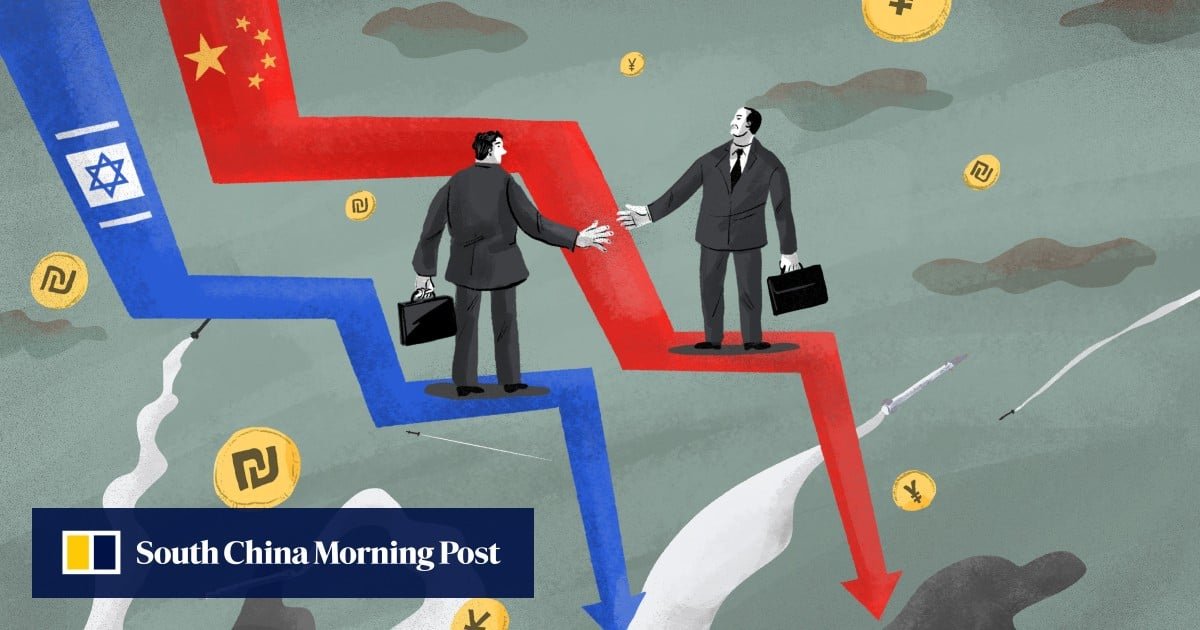
Chinese diplomats have also largely avoided stops in Israel in their rounds of shuttle diplomacy to find an end to the crisis.
After decades of a balanced approach to Middle East diplomacy, China’s unambiguous support for the Palestinian cause in the Israel-Gaza war has increased Beijing’s leverage with the Arab nations and Iran, but at what cost to its ties with Tel Aviv, now and after the war?
There has been little high-level communication between Tel Aviv and Beijing since the war in Gaza started with the attack on Israel last October by the militant group Hamas, which took hundreds of hostages and left 1,200 Israelis dead.
China has not condemned the Hamas attack – a major concern for Israel – and Beijing’s diplomatic efforts have been largely focused on the Palestinian side and the Arab nations.
Observers pointed out that frosty relations between the two sides were to be expected, given China’s Arab-leaning positions and Israel’s enduring alliance with the US, which is in competition with China on numerous fronts.
The only ministerial-level exchange since the war began was a phone call between Chinese Foreign Minister Wang Yi and his Israeli counterpart on October 23 last year, on the same day as a similar call to the Palestinian Authority’s foreign minister.
Former US defence adviser Jesse Marks, a non-resident fellow with the Stimson Centre’s China programme, said Beijing historically had balanced its ties with both the Israelis and Palestinians.
“However, since October 7, China’s diplomatic engagements have leaned towards a pro-Arab stance, straining relations with Israel,” he said.
“China may still be open to rebuilding ties with Israel if there is constructive dialogue about the future of a Palestinian state. Given the current conditions, significant state-level rapprochement between China and Israel seems unlikely.”
“Israel looks to secure its standing in the area in terms of security and the economy. China cannot guarantee Israel’s security and may even undermine it by supporting Israel’s enemies. That leaves us with the economy,” she said.
“There is only room for cooperation with China where the economy does not conflict with security.”
Lavi added that the US had proven that it was “Israel’s best friend”, and that “Israel will find it difficult to refuse the Americans’ demands”.
Meanwhile, China has been stepping up its wooing of the Arab nations in the region and has accused Israel of causing a humanitarian crisis.
The growing animosity between Beijing and Tel Aviv has also been evident in recent opinion polls in Israel. An INSS survey in May showed that around 54 per cent of Israelis have started to consider China as an unfriendly or hostile country.
According to Fan Hongda, a professor at Shanghai International Studies University’s Middle East Studies Institute, the souring of China-Israel relations began earlier, when Tel Aviv found itself caught up in the growing rivalry between Beijing and Washington.
Ties between China and Israel grew rapidly after they established diplomatic relations in 1991. Trade volumes doubled from 2013 to 2022, catapulting China into second place behind the US, Israel’s biggest trading partner.
Technology played a crucial role in the growing bond between the two countries, as China’s ambitions coincided with Israel’s desire to capitalise on its partnerships with the Chinese tech giants.
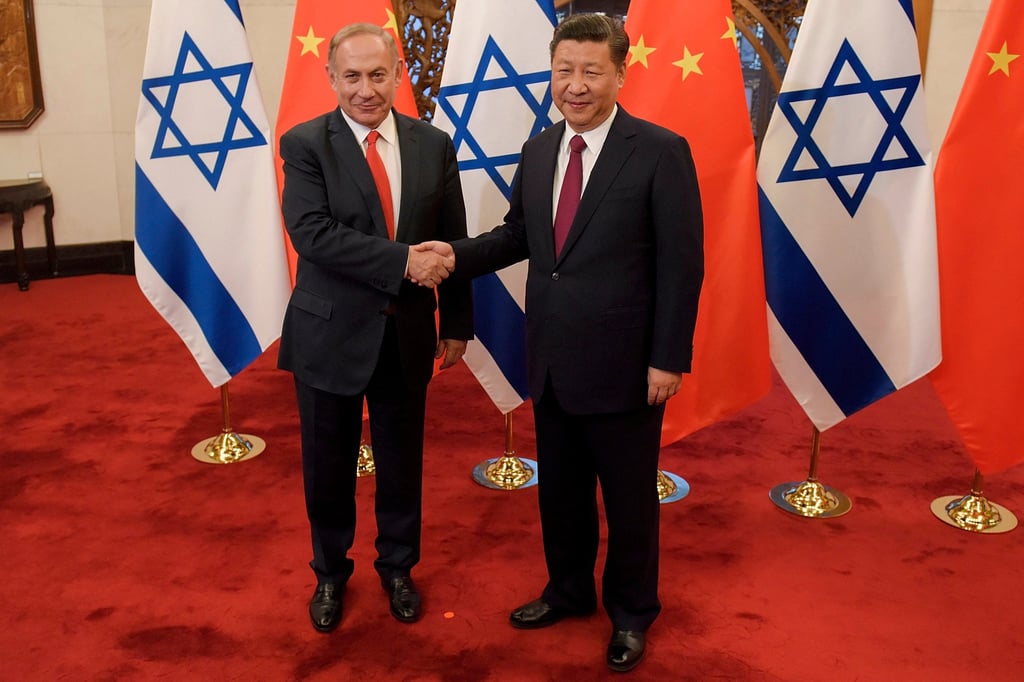
In 2019, under pressure from Washington, Israel opened a national security investigation into foreign investment, especially in technology, targeting the growing inflow of Chinese money.
The pressure continued under Joe Biden’s administration. In January 2022, Israel agreed to notify the US of any major deals with China.
Later that year saw the launch of the US-Israel Strategic High-Level Dialogue on Technology, as the US tightened control over technological cooperation with China and put pressure on its allies to do the same.
John Calabrese, a senior fellow at the Middle East Institute in Washington, said Beijing’s outreach to Tel Aviv had been frustrated by Israel’s move to position itself as a trusted partner to the US, “akin to other American allies like the EU and Japan”.
According to Fan, China’s ambition to expand its influence and become an alternative to the US in the Middle East makes it inevitable that Beijing will eventually extend an olive branch to Tel Aviv.
“If China wishes to contribute to the resolution of the Palestinian issue, it must cooperate with Israel. Without Israel’s endorsement, any effort to resolve the Palestinian issue would be futile,” Fan said.
Israel must also not underestimate Beijing’s influence in the region, even though Tel Aviv has largely relied on Washington’s grand plan to achieve normalisation between Israel and the Arab nations.
Iran – Israel’s strategic enemy – has become reliant on China for its oil trade, giving Beijing some leverage in the relationship.
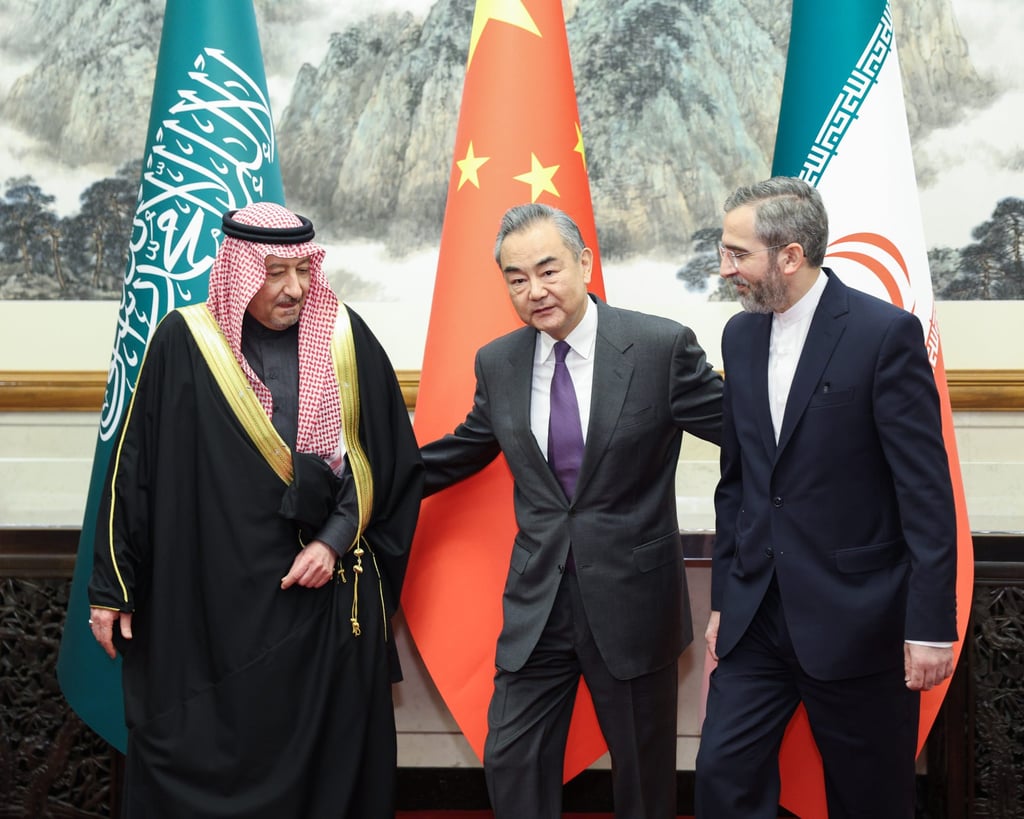
The two foreign ministers exchanged similar phone calls in April after Israel’s assault on Tehran’s embassy in Syria.
Simone Lipkind, a research associate in Middle Eastern studies at the US-based Council on Foreign Relations, said the economy may be key to unlocking strained Israel-China ties.
In an opinion piece for the US-based magazine Time, Lipkind said both had financial incentives to maintain a relationship, given the two countries’ sluggish economic outlook.
“Israel’s war has shrunk its GDP and hurt its credit rating, creating obstacles for Israeli firms looking to raise funds … Meanwhile, Chinese investors are facing a lagging domestic economy and pursuing investment opportunities abroad,” she wrote.
“This dynamic could generate a mutual – albeit reluctant – desire to bolster commercial ties.”
China remains Israel’s second-largest trading partner and is a major investor, adding weight to its sway over the Israeli economy, according to Marks, the former US defence adviser.
“A crucial factor is the economic relationship between Beijing and Tel Aviv. China and Israel have invested billions in science, technology, and research, which provides China with considerable leverage in Israel’s economy,” he said.

